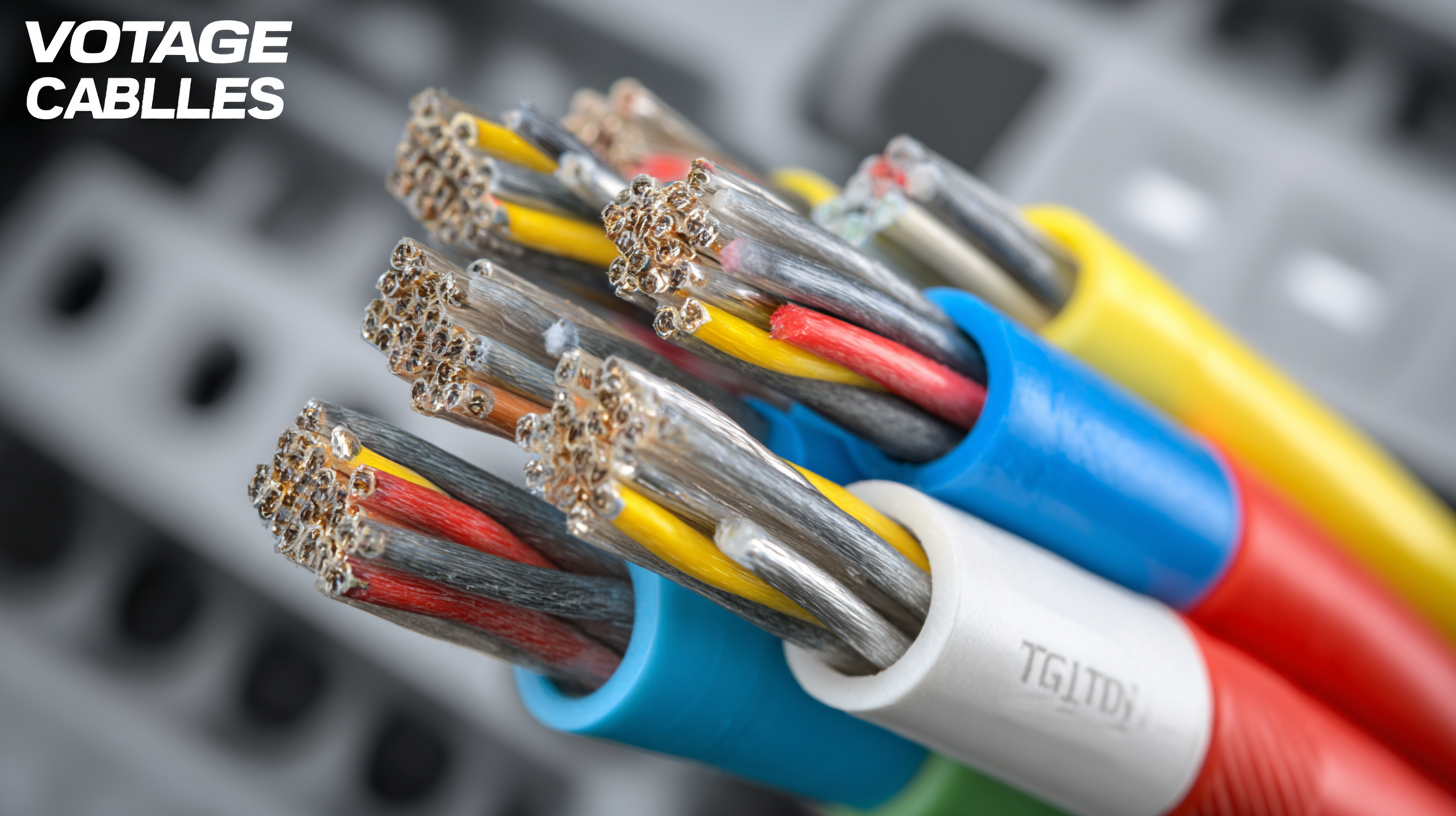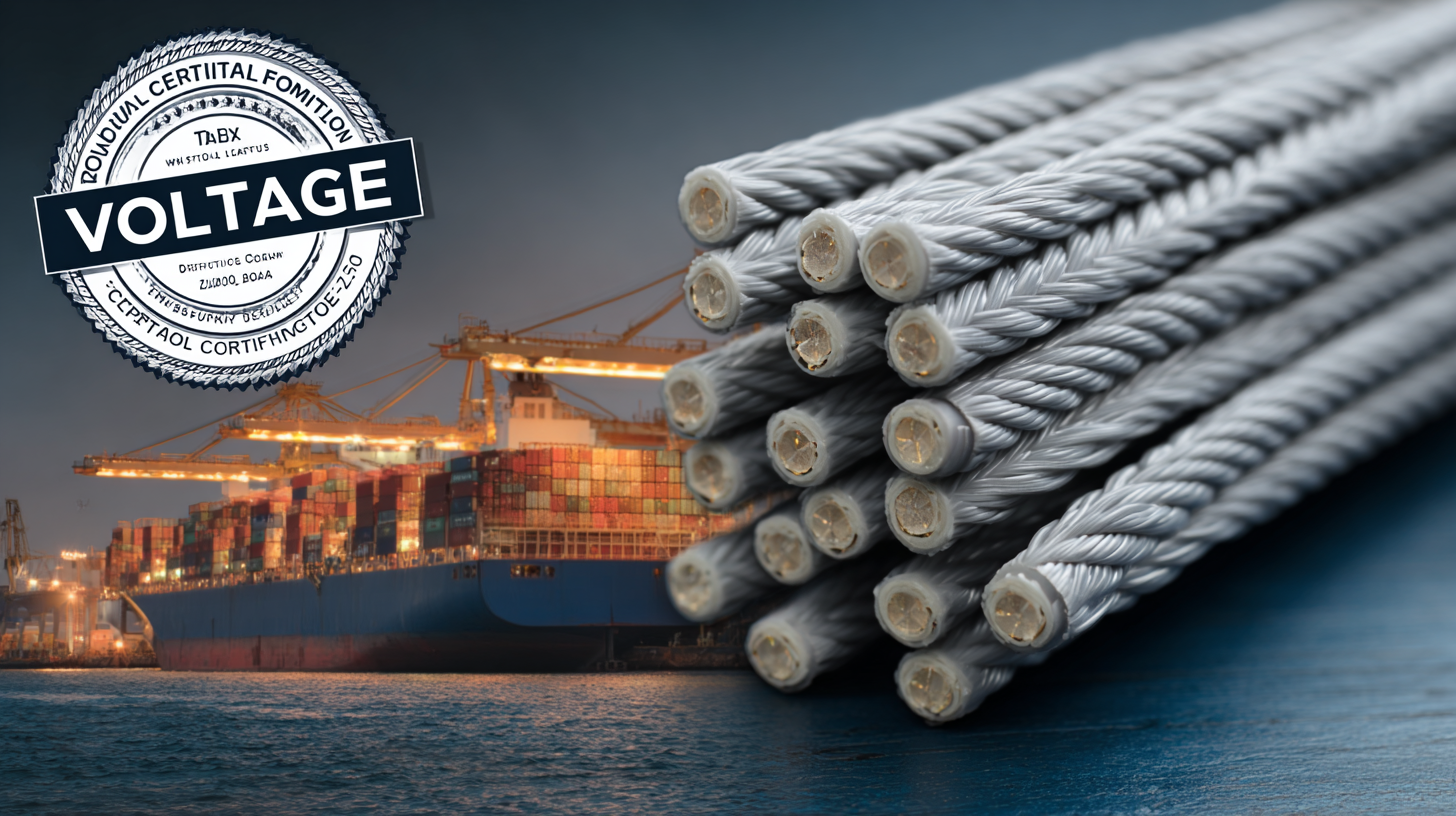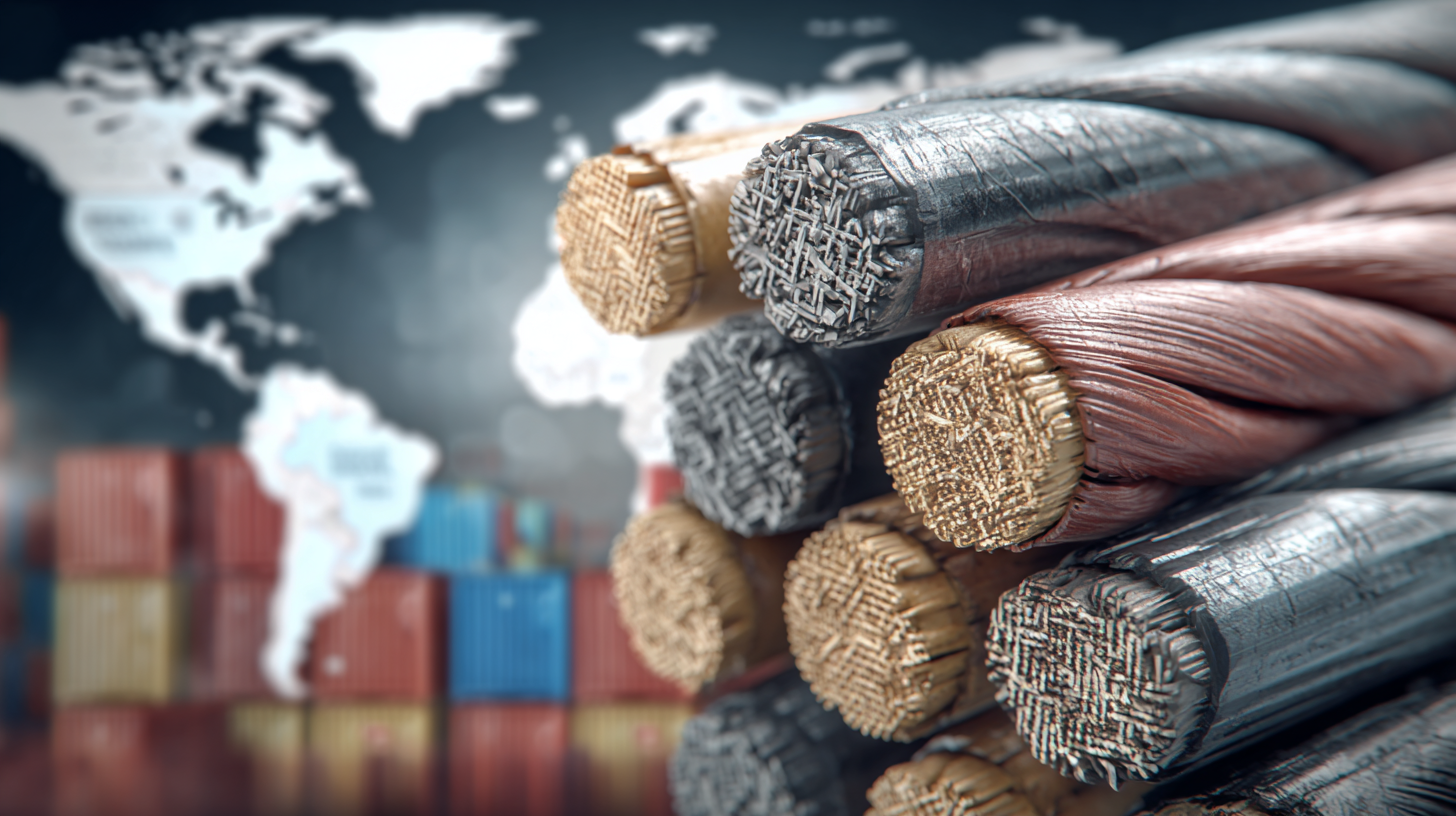Unlocking Global Trade with Best Voltage Cables Understanding Import Export Certifications for Compliance
The rapidly evolving landscape of global trade is marked by the increasing significance of compliance and certification, particularly in industries reliant on high-quality components such as voltage cables. According to a report by the International Trade Centre, the trade value of electrical components, including voltage cables, reached approximately $250 billion in 2022, emphasizing the essential role these products play in international commerce. As countries strive to streamline trade and enhance safety standards, understanding the various import-export certifications is crucial for manufacturers and suppliers in the voltage cable sector. These certifications not only assure compliance with local regulations but also enhance marketability and consumer trust, paving the way for broader market access and potential growth in an ever-competitive environment. In this blog, we will explore the intricacies of voltage cables and the critical certifications that unlock global trade opportunities.

Understanding the Importance of Voltage Cables in Global Trade Compliance
In the rapidly evolving landscape of global trade, voltage cables play a crucial role in ensuring compliance with import and export regulations. Understanding the importance of these cables not only facilitates smooth transactions but also helps prevent costly delays and penalties. Different countries impose specific standards for voltage cables, meaning that businesses need to be well-informed about their requirements for certifications and testing. This knowledge is critical in maintaining the integrity of trade operations and safeguarding investments.
Tip: Always check local and international regulations regarding voltage cables before initiating import or export processes. Staying ahead of compliance requirements can save time and resources.
Moreover, using certified voltage cables can enhance the reliability of your products. Suppliers often look for assurance that the materials they are obtaining meet safety and quality standards. By prioritizing certified voltage cables, businesses can establish trust with partners and customers, ensuring a competitive edge in the global marketplace.
Tip: Invest in training for your team on compliance certifications. This can streamline operations and reduce the risk of non-compliance issues that may arise in the import/export process.

Key Import Export Certifications Needed for Voltage Cable Trade
In the realm of global trade, the importance of adhering to specific import and export certifications cannot be overstated, especially in the voltage cable sector. These certifications serve as a guarantee that products meet international safety and quality standards, facilitating smoother transactions and building trust among trade partners. Key certifications often include ISO standards, electrical safety regulations, and environmental compliance marks. For businesses navigating the complexities of voltage cable trade, understanding these requirements is crucial for not only compliance but also for maximizing market access.
As regions like Vietnam strive to enhance their power infrastructure under initiatives like the National Power Development Plan, the necessity for certified voltage cables has become even more pronounced. The goal of ensuring a steady electricity supply to support economic growth through 2030 emphasizes the integration of reliable energy sources, bolstered by compliant electrical products. Similarly, regional power grids, which allow for the efficient export of renewable energy resources, highlight the pivotal role that certified voltage cables play in establishing a stable and sustainable energy future. By meeting certification requirements, businesses can contribute to these broader energy objectives while also expanding their global reach in the burgeoning energy market.
Global Trade Compliance for Voltage Cables
Top Reasons to Ensure Compliance with Cable Import Export Regulations
In the intricate world of global trade, ensuring compliance with cable import and export regulations is crucial for market success. According to a recent report by the International Trade Centre, non-compliance can lead to delays, increased costs, and potential bans on products, with losses estimated at billions annually across various sectors. A significant number of businesses neglect the importance of certifications, which can ultimately hinder their competitive edge. To thrive in this landscape, understanding the specific cables regulations, including standards such as IEC 60227 for insulated cables, is essential.
Tips for compliance include staying updated on changing regulations, which can vary significantly by region. It’s beneficial to collaborate with local experts who can provide insight into the certification process. Furthermore, leveraging data from industry reports—like those published by Frost & Sullivan—can help companies identify trends and anticipate compliance requirements to align their strategies effectively.
Adopting a proactive approach to compliance not only mitigates risks but can also enhance a company's reputation in the global market. Regularly training staff on compliance protocols and utilizing technology to track regulatory changes can prevent costly infractions and streamline the import-export process.
Navigating International Standards for Voltage Cable Certification
Navigating the labyrinth of international standards for voltage cable certification is crucial for manufacturers aiming to tap into the global market. In an era where the global market for voltage cables is projected to reach $154 billion by 2027, understanding the complexities of compliance has never been more important. According to a report by ResearchAndMarkets, adherence to standards like ISO 9001 and IEC 60227 can significantly enhance a company's credibility and facilitate smoother entry into international markets.

Compliance not only involves meeting technical specifications but also obtaining the necessary certifications, which can vary by region. In Europe, for instance, the Low Voltage Directive (LVD) mandates compliance for all electrical equipment operating at low voltages. Meanwhile, the Underwriters Laboratories (UL) certification is a requisite in the United States, ensuring that cables can withstand rigorous testing conditions. Manufacturers who navigate these certifications effectively demonstrate a commitment to quality and safety, allowing them to differentiate their products in a competitive landscape where consumers increasingly make informed choices based on compliance and safety standards.
The Impact of Non-Compliance on Global Trade and Business Reputation
Non-compliance with import and export certifications can significantly hinder global trade and tarnish a business's reputation. When companies fail to meet the necessary regulations for voltage cables, they may face hefty fines, shipment delays, and even bans from key markets. This can create a domino effect, impacting not only the non-compliant business but also its partners and suppliers. In highly regulated industries, maintaining compliance is paramount. Neglecting these standards can lead to products being seized or returned, eroding trust with customers and stakeholders.
Moreover, the reputational damage from non-compliance can be long-lasting. With an increasingly interconnected global market, consumers are now more informed and attuned to ethical and regulatory standards. A business caught in a compliance scandal may face public backlash, resulting in a loss of customer loyalty and a decline in sales. Companies must prioritize understanding and adhering to import-export certifications not only to ensure the smooth flow of their operations but also to preserve their standing in the competitive landscape of international trade. The stakes are high, and the cost of non-compliance can extend beyond fines, as reputation and trust are invaluable in fostering long-term business relationships.
